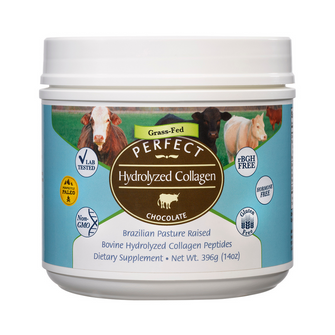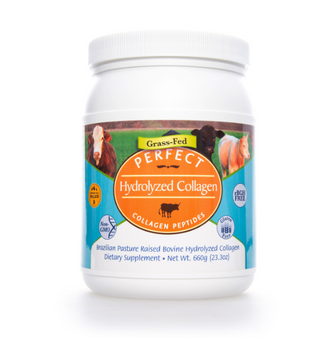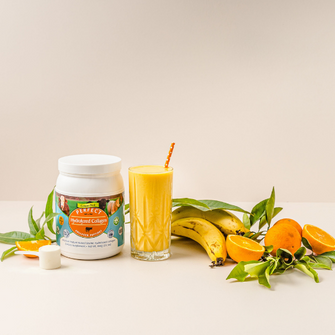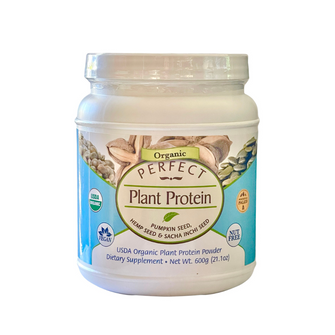Categories
Related Products
The truth about protein is that we need it for good health and there are misconceptions about its importance, so we hope to clear those up in our blogs today.
The topics we will cover in today's blog are as follows:
- What is protein and why do we need it?
- Pregnant women and protein intake
- How much protein does a breastfeeding woman require?
- How much protein should I be consuming if not pregnant or lactating?
- Sources of protein?
- Complete protein
- Does protein lose its effect in a beverage if not consumed immediately?
We will also provide links to other recent (related) articles that will help you on your journey to better health and a greater understanding of macronutrients and calories.
What is Protein and Why Do We Need it?
To keep it simple, protein is an important macronutrient (macro) for helping to repair and build body tissues. Protein is a driver for metabolic reactions but not only that, it is also necessary in maintaining pH and fluid balance. Protein helps keep our immune system strong.
Protein is vital for good health and energy, so if your diet is lacking in good quality protein (in adequate amounts) your energy levels and overall wellbeing will suffer.
Your body is constantly turning over proteins and so we have to keep refuelling protein throughout the day (via the foods we eat).
Our body needs protein to make hormones, for healthy cognitive function, to keep satiated and for our bone health.
Eating adequate amounts of protein can help in our efforts to lose weight also (as it helps to reduce hunger and cravings).
Depending on you and your individual needs, you may require more protein than someone else. Determining this is not difficult and we talk about this in our 'Find Your Right Macros' blog article here.
Did you know that athletes and people who train (lift weights) need to consume more protein because it helps muscle repair, muscle growth/tone and strength.
Another category who require more protein in their diets are pregnant and breastfeeding women.
If you are recovering from surgery or an injury, your body will also require more protein to help your body heal and recover.
Pregnant Women and Protein Intake
When you are pregnant, you may require more protein to sustain your own health and energy but also for your growing baby. Cells demand amino acids and this can require a greater consumption of protein. This practice helps to support a healthy pregnancy.
A woman's protein demands will vary throughout the different stages of pregnancy. This means that one will need to adjust protein intake accordingly.
The RDA (recommended daily allowance) for protein during the first trimester of pregnancy is currently 1.1g of protein per kg of body weight.
A study was released in Circa 2015, which shows that the actual needs for protein in a pregnant woman are 39% higher in early stage pregnancy and 73% higher in later stages of pregnancy (when compared to the estimated average requirement).
What was found is that is that the grams of protein per kg of body weight in early pregnancy should be 1.22g per kg rather than 1.2g of protein per kg of body weight.
Late pregnancy should be around 1.52g of protein per kg of body weight.
Example: If a pregnant woman weighs 63kg (140lbs), she might need 83g of protein each day (or more if she is safely lifting weights). This is the recommended amount for her during the first months of pregnancy and 104g of protein in the later stages of her pregnancy (again, if she is lifting weights it would be higher.
How much protein does a breastfeeding woman require?
When a woman is lactating, her protein requirements will also be higher. Not as high as pregnancy, but still reasonably high.
Currently, the DRI (dietary reference intakes), make the suggestion that a lactating woman should have at least 1.05 grams of protein per kilogram of body weight.
If you're still unsure, there are a few things you can do:
- Research the IAAO method (indicator amino acid oxidation)
- Talk with a nutritionist who specialises in pregnancy nutrition
How much protein should I be consuming if not pregnant or lactating?
This question is general, as each woman will be different depending on various factors;
- A woman's activity levels
- Her current weight
- Her age
- Her height
- If she is pregnant or lactating
To work out how much protein for you as an individual, please head over to our macros blog here. You'll be able to calculate your protein, carbs and fats and also how many calories to consume daily.
We aren't suggesting to count calories per se, but to understand your macros and sources for your food, you'll have a pretty good idea of what to eat and how much.
Other factors that can affect how much protein for you, could be the proportion of amino acids found in certain foods and how digestible these amino acids are for an individual.
Complete Protein
The very best sources of protein are animal proteins. Animal sources of protein are complete sources, while single plant sources are incomplete (they don't contain all nine essential amino acids which makes them an incomplete protein).
If vegetarian or vegan, you will need to combine various plant foods to get your complete protein (legumes/pulses + nuts + grains) in specific combinations.
Or...
You could use Perfect Organic Plant Protein Powder, a complete source of protein containing all 9 essential amino acids. This is an excellent option for those who wish to eat less animal protein or none at all.
The 9 Essential Amino Acids
- Histidine
- Isoleucine
- Leucine
- Lysine
- Methionine
- Phenylalanine
- Threonine
- Tryptophan
- Valine
Sources of Complete Protein
(adjust accordingly for your individual needs)
Lamb
85g of lamb gives you 25g of protein (e.g 1 lamb cutlet)
Lamb is an incredible source of iron, zinc and B12. Don't be afraid of its saturated fat as this is healthy and contains CLA (conjugated linoleic acid). CLA has been shown to help with satiety and managing weight.
Saturated fats (from animal products and coconut oil) are now being shown to be healthy, when once thought to cause disease, but that's a whole discussion for another time.
Grass-fed Beef
85g of grass-fed* beef contains 22g of protein (1 small palm-sized portion)
*Aim for grass-fed over grain-fed to reduce your intake of inflammatory omega-6 fatty acids (that are abundant in grain-fed beef). Too much omega-6 in the diet has been shown to cause inflammation and metabolic issues (insulin resistance).
Beef (grass-fed), is one of the most nutritious meats that you can consume. Some of the nutrients that you'll find in grass-fed beef are CLA, omega-3, vitamins A, E and B1 (thiamin), B3 (niacin), B6 (pyridoxine), B9 (folate), beta-carotene, copper, iron, magnesium and zinc.
Sardines
1 1/4 tin of sardines contains 22g of protein
Sardines are an excellent source of omega-3 fatty acids that help our eyes, heart, brain, behaviour and metabolic health. Omega-3 also helps to reduce inflammation (which can help reduce insulin resistance).
In a tin of sardines, you'll get other nutrients such as calcium, phosphorus, selenium and vitamins B and D.
Organic Chicken Breast
85g (1/2 breast) contains 21g of protein
If you can access certified organic chicken (which we realise is expensive and out of some folks reach) this is ideal, that is because of the way the chickens are raised. They are not going to contain any growth hormones, antibiotics or agricultural chemicals.
Free-range chicken is not as healthy as people think.
When we think of a free range chicken, we may envision chickens roaming around freely in a lovely paddock but often that is not the case.
The truth is, that free range chickens are actually enclosed most of the time and have very little room to move around. Unless you see an RSPCA approved logo on the free range chicken packet, you won't know if the chooks have been humanely treated or not.
Farmed chicken is also fed grains (unless stated otherwise) and this can increase inflammation in the body due to excess amounts of omega-6.
If you're going to eat chicken, you may want to consider organic (if within your budget of course), otherwise I would possibly avoid it.
Salmon (wild-caught)
85g of salmon contains 17g of protein
In the John West Wild Alaskan Sockeye Salmon (often found in Coles and other supermarkets Australia-wide), there's 230g of salmon so this will give you about 24g of protein.
You can also get Wild Alaskan salmon in a tin if you're trying to save money or it better fits your budget. A 415g tin of salmon is equal to about 72.8g of protein.
Salmon (like sardines) is a great source of omega-3's, protein and B vitamins (B3, B5, B6 and B12), plus vitamin D and potassium.
The skin of the salmon is incredibly nutritious. Try to source wild-caught Alaskan or Scottish salmon where possible to avoid harmful dyes, antibiotics, PSBs, POPs, glyphosate etc.
Deep Sea Fish
Our best recommendations for fish is deep sea over pelagic. Pelagic fish swim closer to the surface of the ocean and often contain mercury (a toxic metal that can cause health issues).
We won't list all the deep-sea varieties as there are too many to mention (you could ask your fish monger for recommendations if you have one). The 2 most common deep sea varieties here in Australia are snapper and cod.
231g of cod contains 41g of protein and a snapper fillet is slightly higher at 44g of protein.
The nutrition in white fish that you can expect is vitamin A, B vitamins, vitamin C, calcium, copper, iron, magnesium, phosphorus and zinc.
Eggs (organic if possible)
2 large eggs contains 14g of protein
We really do not want to alienate anyone with the information we share and realise that organic is not within every persons's means so just do the best you can. If you can access organic and pasture-raised eggs that is fantastic and of not, look for RSPCA approved free range.
Eggs are one of the most nutrient-dense foods on planet earth (similar to liver). They contain calcium, choline, chromium, copper, iron, magnesium, manganese, molybdenum, phosphorus, potassium, selenium, zinc and omega-3 (if pasture raised). Eggs also contain all the fat-soluble vitamins (A, D, E and K).
Eggs are such a versatile food, you can fry, poach, scramble, omelette, bake them as well as add them to drinks and smoothies.
Liver
85g of fresh liver contains 23g of protein
Liver also contains a truckload of nutrition to help you fill in any gaps in your diet. We call it 'mother nature's multi vitamin'.
You can expect to find (in beef liver), all the B vitamins and fat-soluble vitamins (A, D, E & K), as well as calcium, choline, copper, coq10 enzyme, iron, magnesium, phosphorus, potassium, selenium, zinc and omega-3 (if from grass-fed beef).
Cottage Cheese
1/2 cup of cottage cheese contains 14g of protein
If you can tolerate dairy, cottage cheese (full-fat) is a great protein option. Full fat is always better as these fats are healthy and when stripped away, it creates a different food, an incomplete food.
As we are all unique and individual, please do what is best for you though, if you don't tolerate fats well for whatever reason, you may prefer the low-fat options. Protein is really the focus here.
Cottage cheese is naturally low-calorie/low-carb food packed with important calcium, B6 (pyridoxine), B9 (folate) and B12 (methylcobalamin). It's an excellent source of protein too.
These nutrients help to support brain function, nerves, blood cells and much more.
Calcium is vital for strong bones and helping to prevent osteoporosis.
Lentils (not a complete protein)
1/2 cup of lentils contains 9g of protein
If you can tolerate lentils, they can be an ok source of protein but they are also an incomplete source of protein so you'll need to mix them with some other plant protein sources (such as grains and nuts).
We won't list all the plant protein sources here as the majority of our customers eat animal protein (according to surveys and feedback that we have taken over the years).
This information is not intended to alienate anyone at all and we offer the Perfect Plant protein as an option to our vegetarian/vegan customers. Our animal protein customers also enjoy the plant protein in smoothies.
Hydrolyzed Collagen and Gelatin
Hydrolyzed collagen contains 10g of protein in a scoop and Bovine Gelatin also contains 10g of protein per scoop
These are an excellent addition to anyone's diet as they contain many amino acids for good health such as: alanine, arginine, aspartic acid, cystine, glutamic acid, glycine, histidine, hydroxyproline, isoleucine, leucine, lysine, methionine, phenylalanine, proline, serine, threonine, tyrosine and valine.
Note: gelatin contains the same aminos as hydrolyzed collagen except for hydroxyproline.
The potential benefits from collagen and gelatin are many, such as improved gut health, better hormone balance, healthier skin/hair/nails, reduced inflammation, improved sleep, tissue repair and much more.
Some say that it also helps to improve leaky gut syndrome (as it helps to repair the gut lining).
Oysters
100g (7 oysters) contains 9g of protein
Oysters are a wonderfully nutritious food and source of complete protein. The nutrients you can expect to find in an oyster are vitamins B1, B2, B12 and C and minerals such as copper, iron and phosphorus.
If you're looking to add more zinc to your diet, oysters are a good way to go as they are rich in zinc (an important nutrient for DNA creation, cell growth, brain function, wound repair, pregnancy and the immune system).
Sea Scallops
1 sea scallop contains 2.9g of protein
If your goal was 20g of protein in a meal (which is quite low), you would need to eat 7 scallops. Scallops can be expensive also so just do what is right for your budget.
Scallops do contain some good nutrition and are low in fat and calories. Scallops contain vitamin B12, iron, magnesium, phosphorus ,potassium, selenium and zinc as well as omega-3's, taurine and glycine.
Whey Protein (grass-fed)
You can find whey protein in concentrate or isolate form, you just need to decide what form is best for you. I personally use both interchangeably (the isolate/WPI in the first half of my menstrual cycle - also known as follicular phase) and the concentrate/WPC in the second half of my menstrual cycle - also known as the luteal phase.
The reason being is that during the follicular phase, you can be lower carb as you're not yet in the process of creating the endometrium in preparation for a pregnancy (this occurs throughout a woman's cycling years regardless whether you want kids or not).
During luteal, I tend to go for the concentrate (WPC) as my body need more calories for the endometrium.
Does protein lose its effect in a beverage if not consumed immediately?
If you want to make a protein shake/smoothie the night before to save time, the question is, 'Does the protein lose its effects'? and the answer is no. Protein is not lost or lessened if you leave it in a beverage overnight (as some other nutrients can be).
So go ahead and make your shake or smoothie ahead of time and take with you to work or travel the following day. 😃
Check Out Our Related Blogs ⬇️
References:
https://athletesanctuary.com.au/female-hormones-and-muscle-recovery/
https://lilynicholsrdn.com/protein-requirements-pregnancy/
https://www.ncbi.nlm.nih.gov/pmc/articles/PMC4942872/
https://www.verywellfamily.com/lifting-weights-during-pregnancy-5181264
https://pubmed.ncbi.nlm.nih.gov/18203885/
https://www.ncbi.nlm.nih.gov/books/NBK500032/
https://www.medicalnewstoday.com/articles/196279
https://www.sciencedirect.com/science/article/pii/S2589004221012773
https://www.sciencedirect.com/science/article/pii/S2589004221012773
https://www.medicalnewstoday.com/articles/196279
https://deniseminger.com/tag/lipid-hypothesis/
https://draxe.com/nutrition/high-protein-foods/
https://wellnessmama.com/health/grass-fed-beef/
https://www.healthline.com/nutrition/17-health-benefits-of-omega-3
https://www.nutritionwithjudy.com/microblog-the-nutrition-facts-of-the-whole-egg
https://www.webmd.com/diet/scallops-health-benefits
https://kb.rspca.org.au/knowledge-base/what-is-the-difference-between-free-range-outdoor-bred-organic-sow-stall-free-rspca-approved
https://www.daylesford.com/our-journal/post/is-there-a-difference-between-free-range-and-organic-chicken
https://www.healthline.com/nutrition/17-health-benefits-of-omega-3
https://healthyeating.sfgate.com/can-mix-protein-shakes-leave-overnight-10713.html
https://www.betterhealth.vic.gov.au/health/healthyliving/protein#:~:text=Protein%20is%20an%20important%20part,used%20as%20an%20energy%20source.
https://www.healthline.com/nutrition/10-reasons-to-eat-more-protein
Disclaimer: the information in this article is intended purely as information and not health advice. It is not intended to treat, diagnose, prevent or cure and one should always seek expert advice from their trusted health practitioner.










